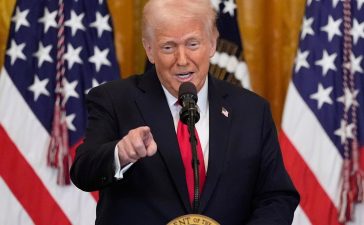Unlock the Editor’s Digest for free
Roula Khalaf, Editor of the FT, selects her favourite stories in this weekly newsletter.
Bupa is facing a mass rebellion by anaesthetists demanding higher fees for private work, as the UK’s largest medical insurer competes for doctors to treat a surge in patients turning to private healthcare at a time of record NHS waiting lists.
Hundreds of anaesthetists sent letters to Bupa on Friday informing the company of their decision to resign from contracts, according to two people familiar with the revolt. The letters provided 30 days’ notice.
A separate newly formed WhatsApp message group for surgeons also angry over perceived low fee levels at Bupa has passed 1,000 members, the people added. It was a “mass mutiny”, said one person close to the two groups of doctors, adding that it had “all turned ugly”.
Bupa wrote to anaesthetists on Friday to offer a 20 per cent increase in the rates for each procedure.
In a statement, James Sherwood, general manager for Bupa UK insurance healthcare management, said the company had “carefully considered” how to balance affordability for customers with the doctors’ demands.
“We want to reassure customers that we have an extensive network of anaesthetists so that all treatment continues as planned,” he added.
However, one doctor described the offer as “derisory”, suggesting the dispute was far from over. “We are instituting a free market for professional fees around the country, as there should be,” the doctor said.
The anaesthetists have said they are still willing to treat Bupa patients but not through the contracts, according to those familiar with the dispute.
The rebellion underscores the complex nature of Britain’s healthcare system where consultants employed by the NHS can also choose to work in their spare time at private hospitals such as those run by Spire, HCA International or Circle Health Group, with the fees paid for by patients, the NHS or insurers.
Insurers traditionally held a powerful position as they brought by far the largest volume of cases to private consultants and hospitals.
This has been shifting as the number of self-pay and NHS-funded patients increased, said Michelle Tempest, analyst at healthcare consultancy Candesic. “The [private medical insurance] sector is beginning to look like the less well-off cousin,” she added.
Any collective action carries a risk that doctors will fall foul of competition authorities. In 2015, an investigation by the Competition and Markets Authority into private ophthalmologists found that they had breached competition law, including through an agreement on fees. The industry body admitted breaching competition law and was fined £500,000.
The British Medical Association, which represents doctors, also warned in a position statement last week that any collective agreement to boycott a private medical insurer could result in sanctions from the CMA.
It would be “likely to have the effect of distorting the market in that it restricts supply of private practitioners to PMIs [private medical insurers] which will have effects on consumer choice and access”, the BMA said.











